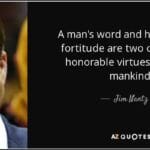Dolores Huerta: her name echoes through history alongside the fight for social justice. But her words? They are sparks, igniting action and inspiring generations of changemakers. From her unwavering fight for farmworkers’ rights to her tireless advocacy for women, immigrants, and the LGBTQ+ community, Dolores Huerta’s life embodies the power of raising your voice for what’s right. Let’s explore her most potent quotes, uncovering the stories behind them and the enduring lessons they offer.
Planting the Seeds of Justice: Huerta’s Early Life
Dolores Huerta’s dedication to social justice wasn’t a sudden spark—it was a fire kindled in childhood. Born in 1930 in New Mexico, she witnessed firsthand the struggles of working-class families and the sting of discrimination. These experiences planted the seeds of empathy and a yearning for a fairer world.
After becoming a teacher, Huerta’s passion for social change intensified. The poverty and hunger she saw among her students, many of whom were children of farmworkers, ignited a fire within her. She realized that education alone couldn’t eradicate the systemic inequalities trapping families in poverty. She had to tackle the root of the problem – the exploitation of farmworkers.
A Force to Be Reckoned With: Co-Founding the UFW
In 1962, Huerta’s path intersected with that of Cesar Chavez, a like-minded activist dedicated to improving the lives of farmworkers. Together, they co-founded the National Farm Workers Association (NFWA), which would later become the renowned United Farm Workers (UFW). Fueled by a shared vision of social justice, Huerta and Chavez embarked on a journey that would transform the landscape of labor rights in America.
Huerta’s contributions to the UFW were anything but quiet. She was a force to be reckoned with—a skilled organizer, a strategic negotiator, and a charismatic leader who rallied farmworkers and captured national attention. Her voice, often amplified by a bullhorn, urged workers to stand united, to demand dignity and respect, and to believe in the power of collective action.
The Birth of a Rallying Cry: “Sí, Se Puede!”
It was during a heated campaign in Arizona that Huerta uttered the phrase that would become synonymous with her legacy: “Sí, se puede!” (Yes, we can!). Facing skepticism from those who doubted their ability to organize farmworkers in the region, Huerta countered with this defiant declaration. Little did she know that her words would resonate far beyond the fields of Arizona.
“We were in Arizona…. And I was speaking to a group of professionals… And they said, ‘Oh, here in Arizona, you can’t do any of that…no se puede—no you can’t.’ And I said, ‘No, in Arizona sí se puede!’ And when I went back to our meeting that we had every night there… I gave that report to everybody and when I said, ‘Sí se puede,’ everybody started shouting, ‘Sí se puede! Sí se puede!’ And so that became the slogan of our campaign in Arizona and now is the slogan for the immigrant rights movement, you know, on posters. We can do it. I can do it. Sí se puede.” – Dolores Huerta (On the slogan “si se puede” in “Dolores Huerta: The Civil Rights Icon Who Showed Farmworkers ‘Sí Se Puede’” in NPR (2017 Sept 17))
“Sí, se puede!” quickly became a rallying cry for the UFW, galvanizing farmworkers across the nation. The slogan’s power lay in its simplicity and its message of unwavering hope. It transcended language barriers, igniting a belief that change was not only possible but inevitable when people united and fought for a common goal.
Beyond the Fields: Huerta’s Intersectional Lens
Dolores Huerta’s fight for justice extended far beyond labor rights. Her activism was deeply rooted in an intersectional framework that recognized the interconnectedness of various forms of oppression. She understood that the struggles for women’s rights, LGBTQ+ equality, immigrant rights, and environmental justice were inseparable from the fight for economic justice.
Huerta challenged sexism within the predominantly male-dominated labor movement, demanding equal pay for women and advocating for their leadership roles. She also championed the rights of LGBTQ+ individuals, recognizing their shared struggle for dignity and equality.
“When I went to Mexico, they always talked about gays. These were people that had to be protected, not abused. And in the early farmworker movement, we had a young group of gay men who worked in the packing shed. They were really, really strong activists. So growing up it never occurred to me that you should discriminate against people who are gay and lesbian. I personally always felt that any kind of discrimination is wrong. I’ve always supported gay rights and went to all the gay rights marches that they had.” – Dolores Huerta (On supporting gay rights in “Dolores Huerta: The Vision and Voice of Her Life’s Work” in AARP (Fall 2004))
Huerta’s understanding of intersectionality was not just theoretical; it was woven into the fabric of her activism. She organized women’s groups within the UFW, mentored countless female activists, and consistently used her platform to amplify the voices of marginalized communities.
An Unwavering Spirit: Huerta’s Enduring Message
Even today, Dolores Huerta’s message continues to resonate, a testament to her enduring legacy. Her words, fueled by a life dedicated to fighting for social change, offer timeless wisdom for aspiring activists and anyone striving to make the world a better place.
Here are some of Huerta’s most powerful quotes and the lessons they offer:
- “Every moment is an organizing opportunity, every person a potential activist, every minute a chance to change the world.” This quote reminds us that activism is not confined to grand gestures or specific events. Every interaction, every conversation, and every moment presents an opportunity to make a difference.
- “The thing about nonviolence is that it spreads.” Huerta firmly believed in the power of peaceful resistance, inspired by leaders like Gandhi and Martin Luther King Jr. This quote emphasizes the contagious nature of compassion and the transformative potential of leading by example.
- “We as women should shine a light on our accomplishments and not feel egotistical when we do. It’s a way to let the world know that we as women can accomplish great things!” Huerta challenged societal expectations that often silenced women’s voices. This quote encourages women to embrace their power, celebrate their achievements, and inspire future generations.
- “I quit because I can’t stand seeing kids come to class hungry and needing shoes. I thought I could do more by organizing farm workers than by trying to teach their hungry children.” This quote offers a glimpse into the empathy that fueled Huerta’s activism. It highlights the importance of addressing systemic issues, rather than simply treating symptoms.
“I never felt overlooked because I didn’t expect any kind of recognition. I think that’s very typical of women. I had been acculturated to be supportive, to be accommodating, to support men in the work they do. We never think of getting credit or recognition or even taking the power. We didn’t think it those terms. Of course I think that’s changing now and there’s a surge of women who are not only running for office, but getting elected. That could make an incredible amount of difference in our world. We will never have peace in the world until feminists take power.” – Dolores Huerta (On not getting credit for the work she did for farmworkers in “Pioneering Labor Activist Dolores Huerta: Women ‘Never Think of Getting Credit’ But Now That’s Changing” in Time (2018 Mar 27))
Dolores Huerta’s life and legacy serve as a powerful reminder that even one voice, amplified by the voices of many, can shift the tides of history. Her unwavering dedication to social justice, her belief in the power of collective action, and her message of hope continue to resonate today, encouraging us to stand up, speak out, and create a more just and equitable world for all.
You should not miss the story of the legendary Minerva Mirabal, a prominent symbol of the resistance against tyranny. Also, you can visit our blog to read a unique version of the Grimm Fairy Tales by Trimble and learn about the symbolism of a Hanukkiah. If you’re curious about the layered meanings behind symbols, you should definitely explore what a serpent symbolizes.
















